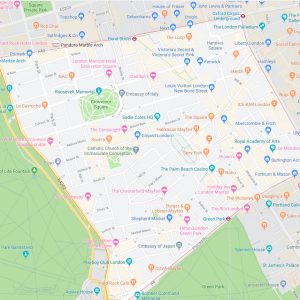THEME ONE – THE NEW ECONOMY
1: Will new, more flexible forms of intergovernmental body – perhaps including virtual bodies – be needed to regulate the digital economy?
2: Is the nation-state under threat as an economic regulator, and as the prime unit of political will?
3: Does a globalised economy mean greater efficiencies or a shift away from rational valuations of goods towards high-risk gambling and speculation about future worth on a vast scale?
4: The production of ever newer technologies seems to be accelerating, so that everything has instant obsolescence built in – are there ways of guarding against this?
5: What will be the effects on the world economy of a fast-growing, entrepreneurial ‘knowledge’ sector that can source its workers anywhere over the internet?
6: What are the problems surrounding the use of different languages online to do business? What about differences in business and social culture, and their effects on international online trading?
7: How can the playing field be levelled between developed and developing countries in creating a digital economy? How can developing countries be assisted in creating the right infrastructure?
8: Does the recent battle between Microsoft and the Department of Justice offer just a taste of legal struggles to come in the fight between private companies to dominate the global digital economy?
9: Will our growing dependence on technology lead to increased risk of Year 2000-style problems (only ones that might actually happen this time?)
10: If many of the important world communities of the future are not fettered by geography, where willit lead the great arguments of political theory like socialism vs capitalism?
THEME TWO – BUSINESS: SINK OR SWIM
11: What kinds of corporate climates and cultures make for success in the e-world, and how can they be encouraged?
12: How can existing business models be adjusted for e-trading?
13: What businesses are most likely to thrive in the new environment?
14: How can businesses measure the return on their investment in technology?
15: How can businesspeople cut through the hype about e-commerce when they read the press? Is the media to blame for inflating expectations?
16: What do you predict will be the major technological developments over the next few years of which businesses must keep abreast?
17: What aspects of technology use should businesses outsource?
18: Does business receive enough support from government in meeting the challenges of the information age?
19: What are the biggest security concerns about doing business online? How can they be solved?
20: Are companies fully realising the potential benefits of teleworking to create a flexible, decentralised workforce? Are there disadvantages to teleworking?
THEME THREE – E-GOVERNMENT
21: How can governments recast their internal structures to deliver online public services efficiently?
22: If governments must continue to offer services in traditional media as well as electronic media to avoid exclusion, how and when can they ever make any efficiency savings?
23: How can public sector bodies ensure they understand the value of the digital information resources they hold, and protect them and profit from them?
24: What are the opportunities and dangers of developing online public health and education services?
25: How can technology be used to regenerate and redevelop economically deprived regions and communities?
26: How can governments create the best national legislative atmosphere for e-commerce, when the economy is global?
27: Is it possible to create an effective taxation system for e-commerce?
28: How great is the threat of ‘cyberwarfare’, and are governments doing enough to protect national and global security and human rights in the information age?
29: What is the correct role for governments in regulating telecommunications?
30: How can governments boost online public consultation and debate – ‘teledemocracy’?
THEME FOUR – CITIZENS AND CONSUMERS
31: How can it be ensured that all parts of society, whatever their income, gender, ethnicity or ability, have full access to the digital economy?
32: How can the technology industry be encouraged to design more accessible products, particularly hardware like computers, mobile phones or digital television sets?
33: What rules or guidelines should exist to ensure online content (for example web content) and software is accessible for all?
34: Are people right to fear that their privacy is being eroded by the storage, exchange and matching of personal data? If so, what is the solution?
35: How can consumer rights be enforced in a virtual world?
36: How can children be protected from harmful material online? How should ‘harmful’ be defined here?
37: What issues surround the use of new technologies by women?
38: What issues surround the use of new technologies by older people?
39: How can citizens use new technology to become more actively involved in the democratic process?
40: How can valuable new forms of online community be developed?
Resources:
- An online debate portal – Including Polls, Debates and Voting data.
- European Debate – A useful resource debating all European issues.
- House of Lords Debate Diary – All Political dates and debate data for the UK Parliament.




